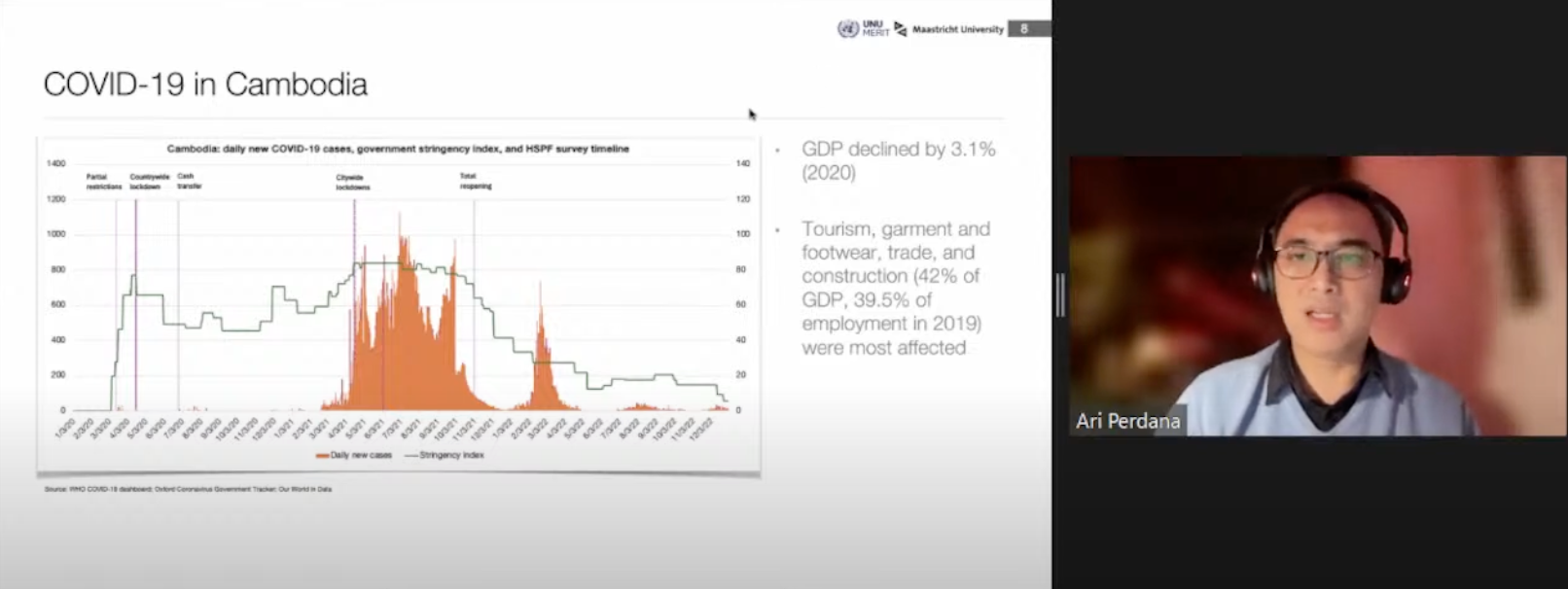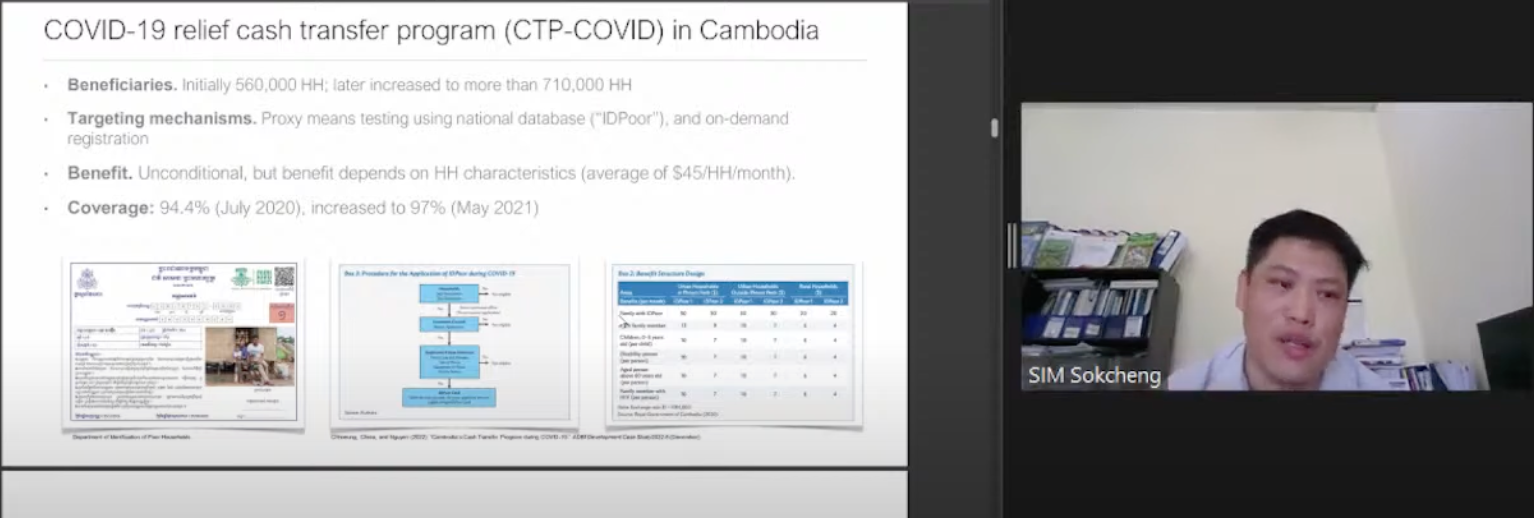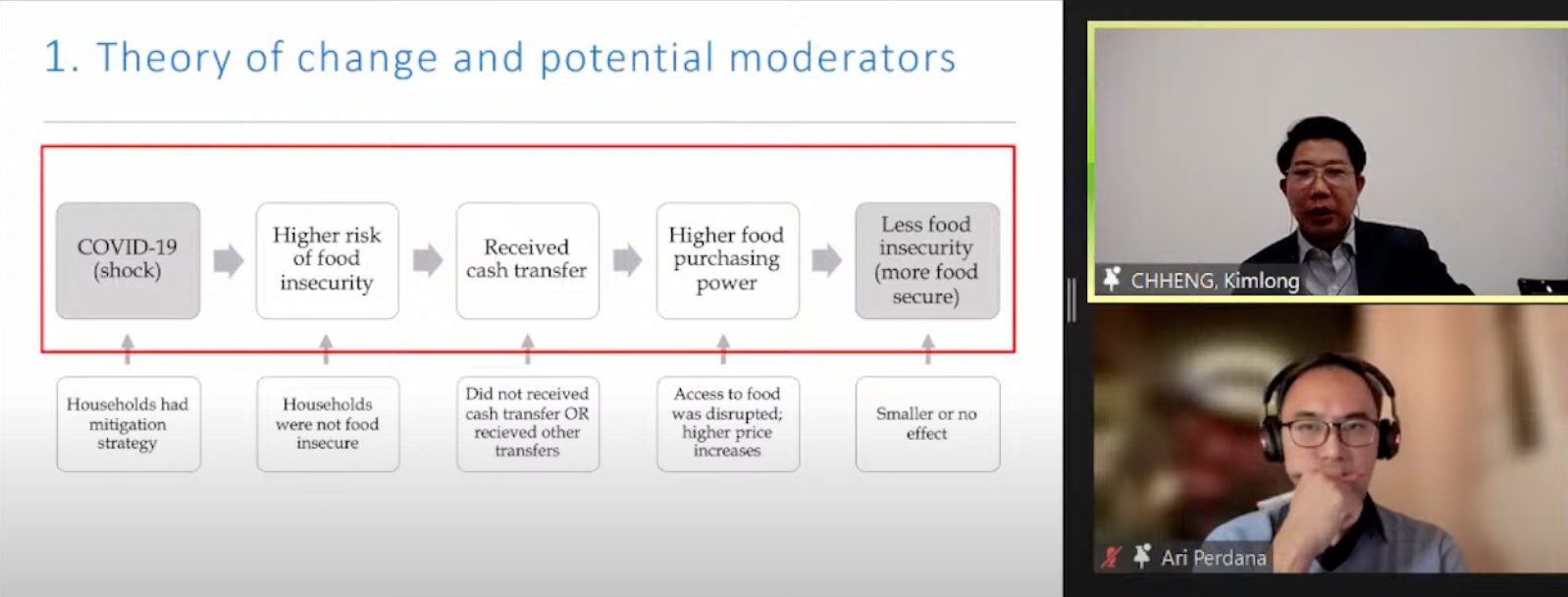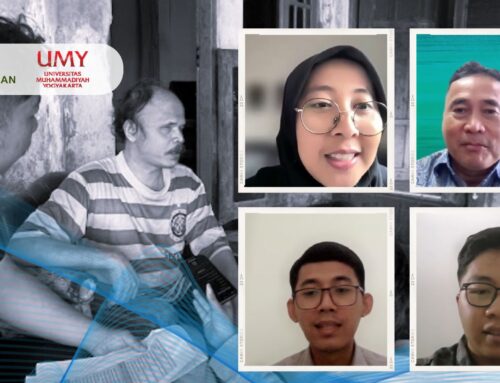FKP hosted by ANU Indonesia Project with Ari Perdana (Maastricht University), Sokcheng Sim (Cambodia Development Resource Institute, Cambodia), Dr Kimlong Chheng (Asia Vision Institute, Cambodia), and Vichea Vanna Phuong (Cambodia Development Resource Institute, Cambodia)). Thursday, 21 March 2024
KEY POINTS:
- The cash transfer program in Cambodia provided essential financial support to over 710,000 households, helping them cope with the immediate impacts of the COVID-19 pandemic. However, the study highlighted that while these transfers served as a critical safety net, they were not sufficient to significantly improve food security among the recipients. This points to the need for reevaluating the adequacy of the support provided.
- The findings from the study emphasize the importance of designing cash transfer programs that not only provide temporary relief but also address the underlying factors of food insecurity. The minimal impact on improving food security suggests that future programs may need to incorporate larger transfer amounts, broader coverage, or integration with other social services to effectively lift households out of food insecurity.
SUMMARY
- During the global COVID-19 pandemic, nations worldwide have been faced with unprecedented challenges, including economic downturns and increased food insecurity. Cambodia, facing a significant decline in key economic sectors, implemented a cash transfer program aimed at mitigating these crises among its most vulnerable populations. A recent study by Ari Perdana, using data from a high-frequency phone survey conducted by the National Institute of Statistics and the World Bank, provides a nuanced analysis of this program’s effectiveness during the pandemic period of 2020 to 2021.
- The COVID-19 pandemic severely impacted Cambodia’s economy, with a reported GDP decline of 3.1% in 2020. Key economic sectors such as tourism, garment manufacturing, and construction, which collectively contribute significantly to the nation’s GDP and employment, faced acute challenges. This economic backdrop set the stage for the government’s intervention through cash transfers.
- The Cambodian government’s cash transfer program (CTP), initially reaching 560,000 households, was later expanded to cover more than 710,000 households. The program provided an average of $45 per household per month, with the aim of covering 97% of the targeted demographic by May 2021. The program was structured to use proxy means testing and on-demand registration to identify and support those in need.
- Data collected through the high-frequency phone survey revealed significant insights into household income dynamics and coping strategies during the pandemic. Many households reported a decrease in income, with common coping mechanisms including reducing both food and non-food consumption and increasing reliance on government assistance. Despite these measures, the survey indicated minimal improvements in food security, assessed using the Food Insecurity Experience Scale (FIES).
- The study analyzed the cash transfer program’s impact on maintaining versus improving food security. Findings suggested that while the cash transfers helped stabilize the food security situation by acting as a safety net, they were not potent enough to bring substantial improvements. This outcome points to the program’s role in helping households cope with immediate financial hardships but falling short of lifting them out of food insecurity.
- The presentation concluded with several important questions about the accuracy and suitability of the research design and narrative. It highlighted the need for further investigation into why the cash transfers did not significantly enhance food security levels. Questions were raised about the adequacy of the transfer amounts and whether other factors might have played a role in the observed outcomes.
- This study underscores the importance of cash transfers in providing immediate relief while also calling attention to the limitations of these measures in addressing issues like chronic food insecurity. As Cambodia and other nations continue to navigate the aftermath of the pandemic, this research contributes valuable insights into the design and implementation of economic relief programs, ultimately aiming to enhance their efficacy in future crises.







